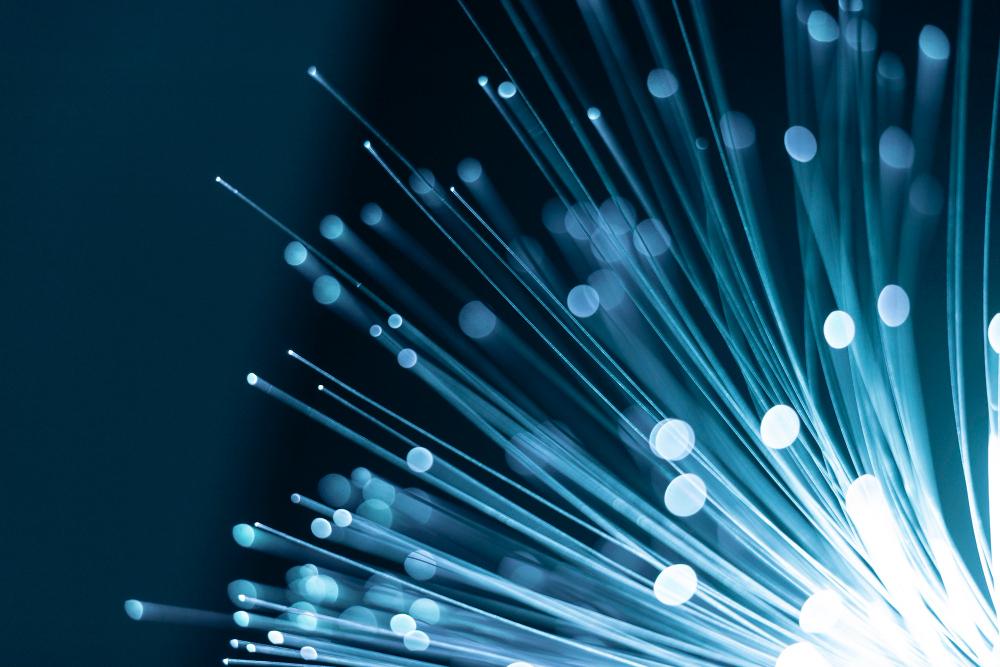Best Fiber Internet Services: An In-Depth Guide

With the digital world constantly evolving, high-speed and reliable internet is more essential than ever. For streaming, remote work, online gaming, and everyday browsing, fiber internet offers one of the fastest and most stable connections available. If you’re considering upgrading to fiber, understanding its benefits and what makes it stand out from other internet types is important. In this guide, we’ll cover everything you need to know about fiber internet services and help you decide if it’s the right choice for your needs.
What is Fiber Internet?
Fiber internet uses fiber-optic cables, which transmit data as light signals rather than using electrical signals over traditional copper cables. This technology allows fiber internet to achieve speeds and reliability far beyond what DSL and cable connections can offer. Fiber-optic cables can also carry data over longer distances without losing speed or quality, making it a great choice for rural areas as well as urban settings.
With fiber, you can experience both high download and upload speeds, often reaching up to 1 Gbps (gigabit per second) or even more. This is especially beneficial for homes with multiple devices, allowing everyone to connect simultaneously without noticeable slowdowns.
Benefits of Fiber Internet Services
Fiber internet services come with several key benefits that make them a worthwhile investment:
-
Lightning-Fast Speeds
Fiber internet can achieve speeds that are significantly faster than both DSL and cable connections. With fiber, it’s possible to download large files, stream 4K videos, and even play online games without lag. Many fiber plans offer symmetrical speeds, meaning that upload and download speeds are the same. This is especially useful for activities like video conferencing, live streaming, or uploading files to the cloud. -
Reliability and Stability
Since fiber uses light rather than electrical signals, it’s less susceptible to interference from nearby electronic devices. Weather conditions, such as thunderstorms, rarely impact fiber connections. This stability ensures a more consistent internet experience, even during peak hours when many people are online. -
Lower Latency
Latency refers to the delay in data transmission, which can impact activities like online gaming, video conferencing, and voice calls. Fiber internet has low latency due to its high-speed data transmission. This feature is crucial for anyone needing real-time response, making fiber one of the best options for competitive gamers, remote workers, and content creators. -
Supports Multiple Users and Devices
Fiber’s high-speed capacity means that multiple users can connect simultaneously without significantly slowing down. In a household with multiple devices connected to the internet—smartphones, tablets, laptops, and smart home devices—fiber can handle the load more effectively than other types of connections. -
Future-Proof Technology
Fiber-optic infrastructure is considered future-proof due to its ability to handle even higher speeds as technology advances. By investing in fiber internet services now, you’re choosing a technology that is likely to remain relevant as online demands increase. As more devices are added to households and digital content quality increases, having a fiber connection ensures your internet remains fast and reliable.
Types of Fiber Internet Services
There are several types of fiber internet services, each with unique attributes. Knowing the difference between these options can help you choose the best fiber internet services for your needs.
-
Fiber to the Home (FTTH)
FTTH, sometimes referred to as Fiber to the Premises (FTTP), delivers fiber-optic connections directly to individual homes. This type of fiber service is known for providing the fastest and most consistent speeds, as it eliminates intermediaries like copper or coaxial cables. FTTH offers the highest performance for residential users and is the best choice for those looking for ultra-fast, reliable internet. -
Fiber to the Curb (FTTC)
FTTC connects fiber cables to a distribution point close to a group of homes, usually within 1,000 feet. From there, the signal is transferred to homes via copper wires. While FTTC provides relatively high speeds, it’s not as fast or reliable as FTTH due to the use of copper cables for the last leg of the connection. -
Fiber to the Building (FTTB)
Commonly used in apartment buildings or business complexes, FTTB brings fiber to a central point in the building. Individual units then receive connections via coaxial or Ethernet cables. This type of fiber internet service is common in densely populated areas and offers fast speeds for both residential and commercial use.
How to Choose the Best Fiber Internet Service
Finding the best fiber internet services for your home or business involves considering several factors. Here’s a step-by-step guide to help you decide:
-
Assess Your Internet Needs
Before choosing a service, think about how much speed you actually need. Light internet users, who mostly browse the web and check emails, may not need the top-tier speeds fiber offers, but larger households or users who stream, game, or work remotely will benefit from higher speeds. -
Check Availability in Your Area
Fiber internet isn’t available everywhere, so you’ll need to check if it’s offered in your location. Providers continue to expand their fiber networks, but rural or remote areas may still have limited options. -
Compare Speed Options and Pricing
Different fiber internet services come with varying speed plans and pricing. Compare packages from local providers to see which one best fits your budget and needs. Keep in mind that faster speeds often come at a higher price, so consider what speeds you realistically require before committing to a plan. -
Consider Equipment and Installation Costs
Some fiber internet services may require specific equipment, like a compatible modem and router, which could come with additional costs. Make sure to factor in the installation fees and the cost of any necessary equipment when comparing fiber plans. -
Look at Contract Terms
Many providers require a contract, especially for higher-tier plans. Check the terms for any hidden fees, early termination penalties, or service limitations. Opting for a plan without a contract, if available, can give you flexibility should you need to change your plan or provider. -
Customer Support and Reviews
Reliable customer service can make a big difference, especially if you encounter technical issues. Check customer reviews to see how providers handle service interruptions, equipment repairs, or customer inquiries. Going with a provider known for responsive and helpful support is a good choice.
Fiber Internet vs. Other Internet Types
Understanding how fiber compares to other types of internet can help you decide if it’s worth the upgrade. Here’s a quick look at how fiber stacks up against DSL, cable, and satellite internet:
-
DSL Internet: Uses phone lines and is much slower than fiber. It also suffers from slower upload speeds, which can impact file uploads and video calls. DSL is a good option for basic browsing but doesn’t match the speed and reliability of fiber.
-
Cable Internet: Cable is faster than DSL but not as fast or reliable as fiber, especially during peak hours. Cable speeds can be impacted by high network traffic, whereas fiber connections generally remain consistent.
-
Satellite Internet: Primarily used in remote areas where other types aren’t available, satellite is slower and prone to higher latency. It’s often the least reliable option, making it a last resort compared to the high performance of fiber internet services.
Is Fiber Internet Worth the Cost?
If you’re a heavy internet user, have a large household, or work from home, the investment in fiber is likely worth it. Fiber internet services offer a combination of speed, reliability, and future-proofing that other types can’t match.
However, if you only use the internet for basic tasks, such as checking email and browsing, you might not need the high speeds that fiber provides. It’s all about evaluating what you need in an internet connection and balancing it with the cost of fiber services.
Fiber internet services represent the gold standard in internet connectivity, with speeds and stability that are hard to beat. Whether you need high speeds for streaming, gaming, or remote work, fiber can meet those demands. Its resilience to interference and future-proof technology make it a strong choice for those looking to invest in a reliable, long-term internet solution.





